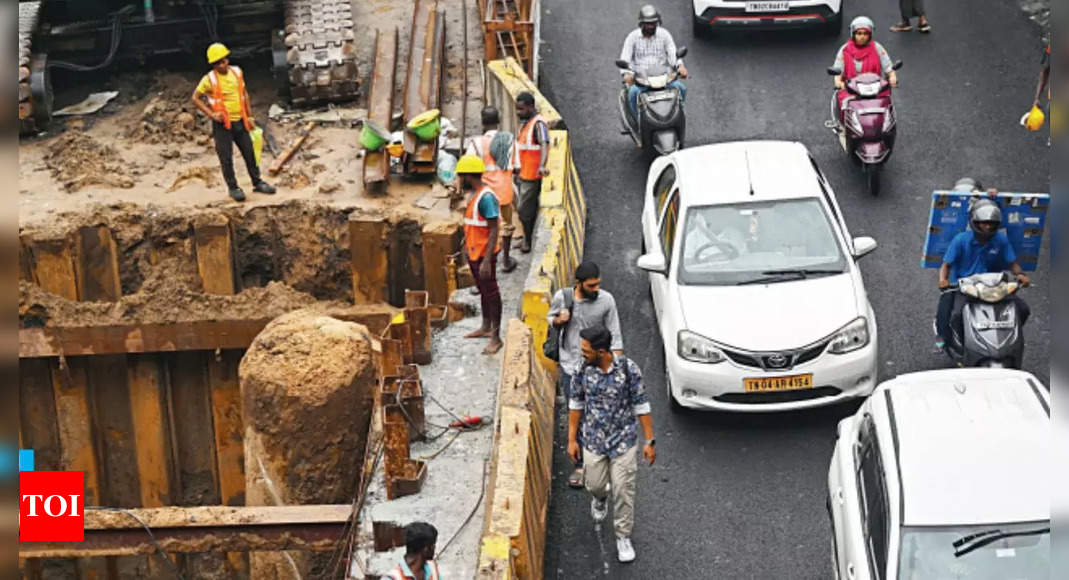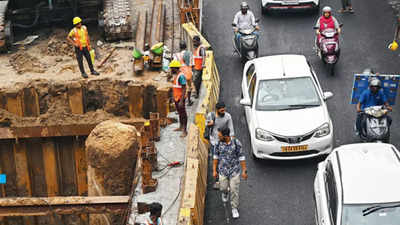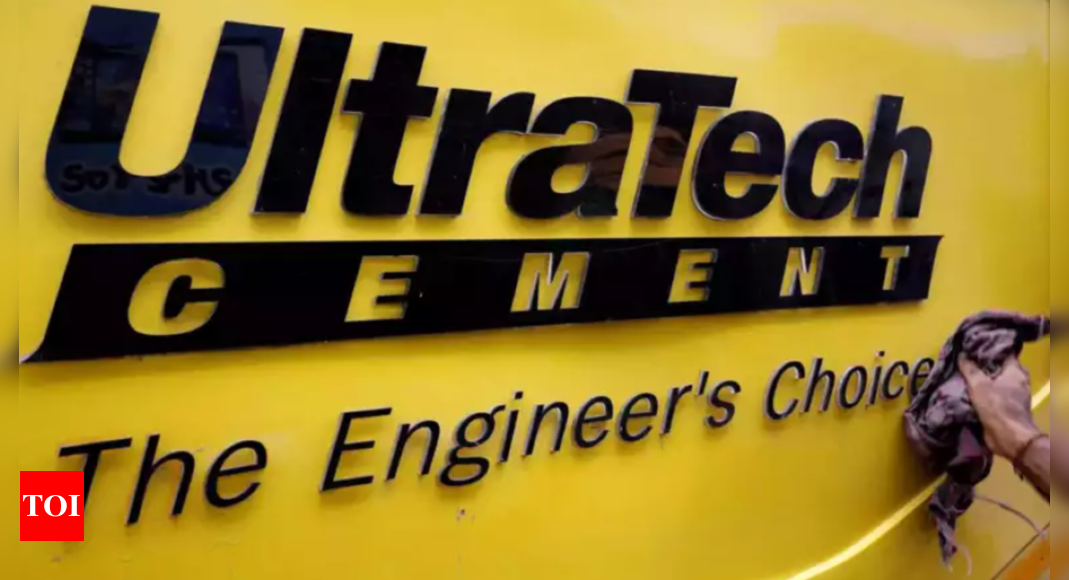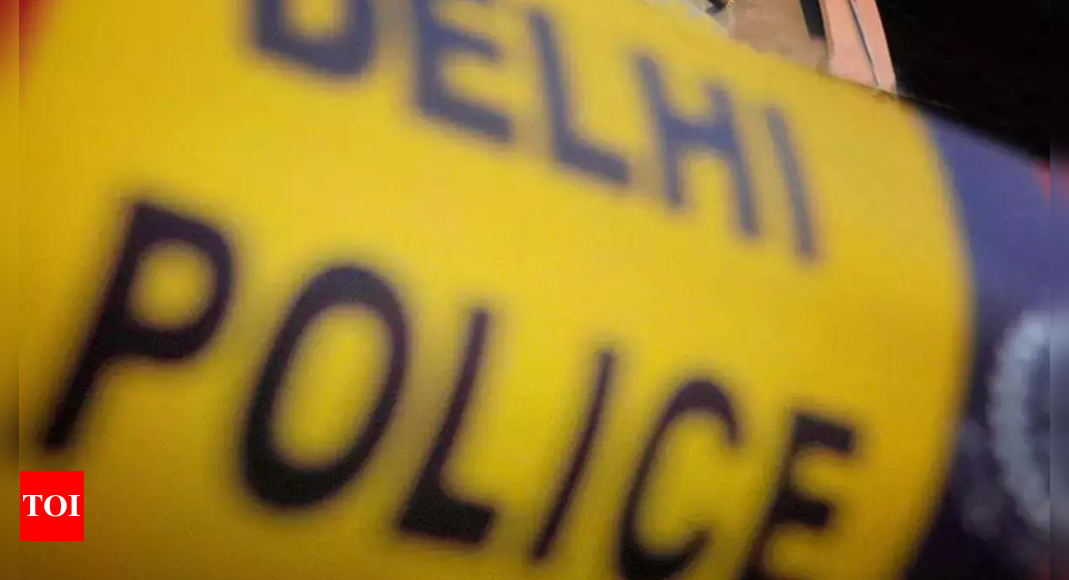The ongoing metro rail work has been causing significant disruptions to road-users, with diversions, bottlenecks, barricades, and cumulative delays becoming a daily norm. But have you ever wondered what is the actual cost of these disruptions?
According to a report by Asian Development Bank (ADB), which is funding the project, traffic slowdowns caused by metro rail work have resulted in a loss of approximately Rs 1,696 crore to motorists in the past three years. The biggest contributors to this notional loss are junctions in areas such as Poonamallee, Madipakkam, Adyar, and Thoraipakkam. Traffic slowdowns were reported at 48 major locations.
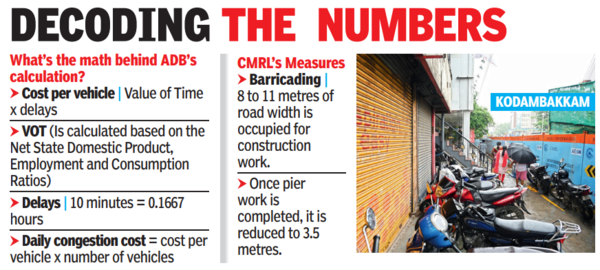
Overall, CMRL’s phase 2 work has led to significant congestion across 110 stretches in the city. ADB says an average 10-minute delay per trip costs Rs 40 to Rs 130 per hour for every motorist on the road (see graphic for calculations).
Traffic experts and residents said simple measures such as levelling roads, relaying battered portions after pillar work and implementing improved diversion plans could cut delays.
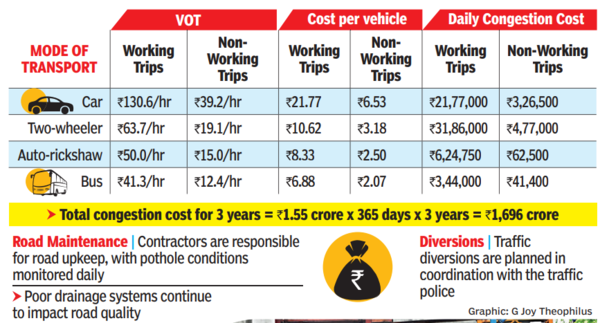
For instance, on OMR, service lanes and main carriageway are uneven, with a height difference of 10 to 20 cm on some stretches, making it difficult for four-wheelers. Twowheelers often skid while crossing lanes, leading to accidents.
“Potholes worsen the situation, reappearing within days of relaying,” said resident-activist Sathish Galley.
On Madipakkam-Medavakkam Main Road, only 3 to 4 metres of the stretch are usable, forcing MTC to switch to smaller buses with reduced frequency. With CMRL work expected to take another three to four years, bus services are insufficient and share autos have abandoned the route.
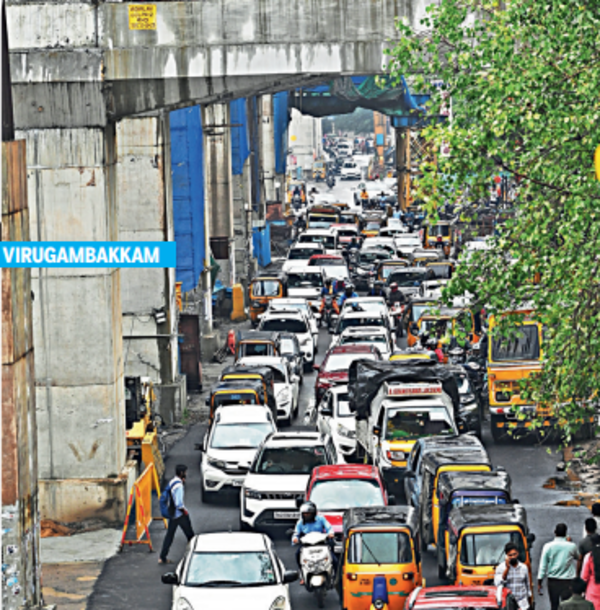
Varadhan Ananthappan from Madipakkam said: “Many now rely on private vehicles, especially bikes, which speed through residential streets in Madipakkam, Nanganallur, and Puluthivakkam. Unlike Nandambakkam, there are no clear diversion signboards, and frequent changes to traffic plans create chaos.”
When contacted, CMRL director (projects) T Archunan said 8 to 11 metres of roads are barricaded during construction. This was reduced to 3.5 metres after pier work was done. In Phase 2’s 119 km stretch, 75 km involves elevated structures, of which 50 km is ready with reduced barricades, while the remaining stretches will be wrapped up by May.
On pothole complaints, he said road maintenance is the contractor’s responsibility and pothole conditions are reviewed daily. Inefficient drains cause rainwater stagnation, damaging the bituminous layer under heavy traffic, said Archunan.
While the economic costs of congestion are widely discussed, the health impact remains overlooked.
Dr D Sidharth, Orthopedician
“While the economic costs of congestion are widely discussed, the health impact remains overlooked. The strain from poor roads, traffic, and detours takes a toll on motorists,” said Dr D Sidharth, an orthopaedician. Constant jolts lead to lower back pain and cervical spondylosis over time, while exposure to vehicle emissions raises the risk of asthma and bronchitis. Long hours on the road causing exhaustion and persistent fatigue increase accident risks.
“CMRL may claim a reduction in road accident fatalities, but it has indirectly increased accident risks,” Sidharth said.
